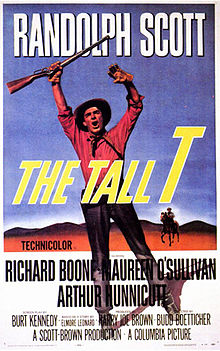
Fool’s courage. Operation Market Garden was the code name for the failed attempt to take the bridges around Arnhem in Holland as winter drew in during 1944. The Allies led by Montgomery and Eisenhower had the idea to power through to the damaged German factories on the Ruhr – and a combination of bloody mindedness, poor planning, bad luck and bad weather made it a pretty disastrous sortie and certainly did not end WW2 as anticipated. The great Irish writer Cornelius Ryan’s stonking blockbuster books about the era yielded this (published in 1974) and Darryl F. Zanuck’s independent production The Longest Day (1962) and his brilliance as a journalist and investigative historian have cleared up a lot of myths about certain WW2 events, this not being the least of them. Both films have an A-Z list of stars in common but Richard Attenborough was the sole helmer here and William Goldman adapted the book, published in 1974. General Browning (Dirk Bogarde, a real life WW2 soldier) is the man poised to lead Montgomery’s plan but when a doubting Private Wicks (Paul Copley) carries out an extra recce and supplies him with photos of concealed armoured German tanks in the area where the landing is planned he has him put out on sick leave. Bad idea. With seven days’ notice the paratroopers, infantry and air service both US and UK are sent in. It’s well set up with the Dutch underground – a father and son carry out some spying for the Brits on the Nazis assembled in the area – and the putting together of a team of doubting Thomas Allies with Sean Connery in particular being given some great moments as General Urquhart – confessing to air sickness before takeoff; landing in a forest where the lunatics from the local asylum are literally laughing at him; and in a lovely touch and a symmetrical moment after the disaster has happened, arriving at Browning’s Dutch HQ being greeted by geese – who are clearly laughing at him too. That’s good writing. Never mind the naysayers, and there have been a lot over the years amongst the critical posse, who probably wish this had had a very different outcome (don’t we all): this is fiercely exciting, mordantly funny and has memorable moments of sheer bloody minded bravery, not least when James Caan pilots a jeep through a Nazi regiment with the body of a young captain he has promised he wouldn’t let die. If you’re not cheering at this then you’re not breathing, mate. Maximillian Schell is terrific as the German General who applauds his opponents’ courage and hands Anthony Hopkins a bar of chocolate upon capture. After he’s given the order to raze Arnhem. Thrilling, splendid and a history lesson we still need to learn – bad project management, not heeding early warnings and then stopping the Poles from parachuting in because of fog when it was too late to rescue those poor men who were being slaughtered by the thousand. And those bloody radio crystals. Why’d they bring the wrong ones when the drop zone was eight miles from the river? Sheesh. Exciting as hell. And with a bigger body count. Fantastic, with every Seventies star you could wish for, be they given ever so little but with a special mention to little known Paul Maxwell and Erik Van’t Wout. There is an absolutely iconic score by the great John Addison: hear it and you know exactly where you are. What a shame Ryan didn’t live long enough to see it: he died two months after the book was published. What a gentleman and scholar he was. His contribution to our knowledge is immense. Just the thing for a rainy summer’s day when you should be watching Wimbledon but they shunted it back by a fortnight. Again.












